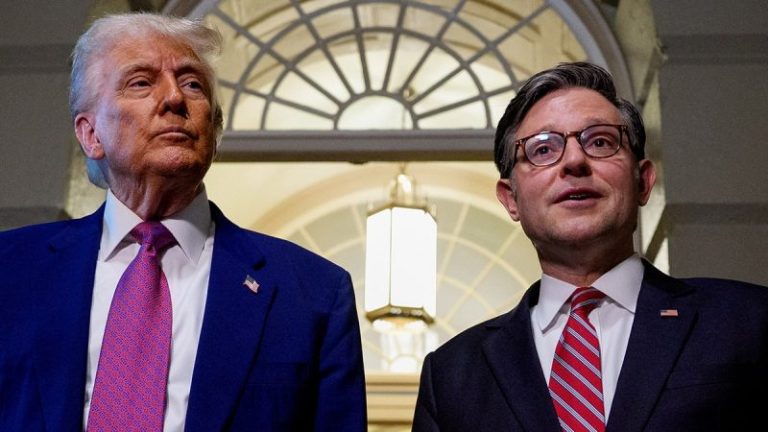The end of the longest government shutdown in U.S. history is finally in sight, with the House of Representatives set to vote on a federal funding bill later Wednesday evening.
House lawmakers are set to take a procedural vote in the 5 p.m. hour on whether to allow debate on the measure. If the legislation survives, a final vote is expected in the 7 p.m. hour.
The government has been shut down for 43 days as Democrats and Republicans hotly debated the merits of the GOP’s initial federal funding bill, a short-term extension of fiscal year (FY) 2025 spending levels through Nov. 21.
The vast majority of Democrats are still against the legislation, including House Democratic leadership, but GOP lawmakers across several ideologically diverse factions have signaled confidence in a nearly unified Republican vote.
House Freedom Caucus Policy Chairman Chip Roy, R-Texas, said he heard no dissent on the bill from his band of fiscal hawks.
‘I’m not going to speak for everybody, but I think there’s general support. So you know, I’m unaware of any opposition of significance,’ he told reporters Tuesday night.
House Appropriations Committee Chairman Tom Cole, R-Okla., said, ‘Nothing’s ever easy around here. But, look, I didn’t notice any dissent … I think the votes will be there on our side.’
But with a razor-thin majority, House GOP leaders can only afford to lose two Republican votes at most to pass the bill without relying on any Democrats.
‘I’m very hopeful,’ House Majority Leader Steve Scalise, R-La., told Fox News Digital when asked if Republicans had the votes to pass the bill. ‘I think you’re seeing just a few Democrats come to their senses. It should be a lot more.’
Meanwhile, the shutdown’s effects on the country have grown more severe by the day.
Many of the thousands of air traffic controllers and Transportation Security Administration (TSA) agents who had to work without pay were forced to take second jobs, causing nationwide flight delays and cancellations amid staffing shortages at the country’s busiest airports. Millions of Americans who rely on federal benefits were also left in limbo as funding for critical government programs ran close to drying out.
At the heart of the issue was Democratic leaders’ refusal to back any funding bill that did not also extend COVID-19 pandemic-era enhanced Obamacare subsidies that are set to expire at the end of this year. Democrats argued it was their best hope of preventing healthcare price hikes for Americans across the U.S.
Republicans agreed to hold conversations on reforming what they saw as a broken healthcare system, but they refused to pair any partisan priority with federal funding.
The initial bill passed the House on Sept. 19 but stalled in the Senate for weeks, when Democrats sank the bill more than a dozen times.
However, after weeks of stalemate and the clock running down on their Nov. 21 bill, a new compromise emerged that got support from eight Senate Democrats to carry it across the finish line.
The new legislation would extend FY 2025 federal funding levels through Jan. 30, to give negotiators more time to strike a longer-term deal for FY 2026.
It would also give lawmakers some headway with that mission, advancing legislation to fund the Department of Agriculture and the Food and Drug Administration; the Department of Veterans Affairs and military construction; and the legislative branch.
In a victory for Democrats, the deal would also reverse federal layoffs conducted by the Trump administration in October, with those workers getting paid for the time they were off.
A side deal struck in the Senate also guaranteed Senate Democrats a vote on legislation extending the enhanced Obamacare subsidies. Speaker Mike Johnson, R-La., however, has made no such promise in the House.
If passed on Wednesday night, the legislation heads to President Donald Trump’s desk for a signature.
When asked about the bill on Tuesday, a White House official told Fox News Digital, ‘President Trump has wanted the government reopened since the first day Democrats shut it down. The action in the Senate is a positive development, and we look forward to seeing it progress.’

